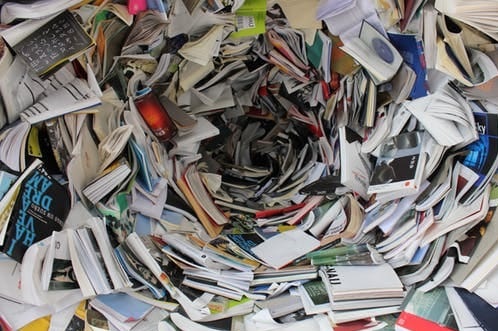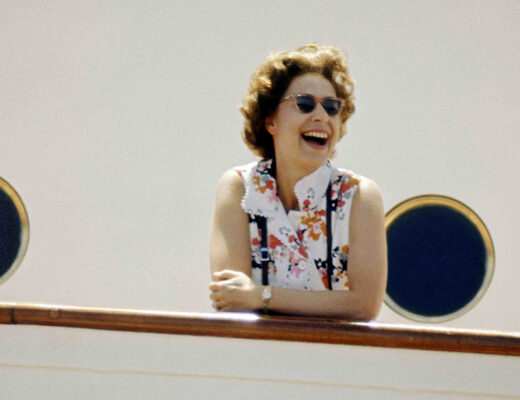
Your favourite old photos has a stubborn coffee ring/stain across it. What do you do?
Or if your wedding photos are damaged in a flood?
Or if you wish to transfer your business’ entire image catalogue’s. Well, the back catalogue from physical brochure prints to your brand new website? Less upsetting, yet equally as important from a more corporate aspect.
The answer is pretty much one of the same.
Get in touch with a review site-leading photo retouching service. One which specialises in digitally scanning photos. In the business of restoring your all-important images. Or elsewhere, scanning them in their current workable form. So you can then subsequently transfer them onto your company’s site.
Old photos sadly don’t last forever, you see.
Unlike the memories which are captured in the original event. Cemented within the mind’s eye for future visual recall. Images will inevitably fade with the passage of time. Regardless of the original paper quality. However much you try to protect it.
Unless of course you have ready access to an archive library or the National Museum. Where various images are preserved for posterity. Typically behind all manner of protective materials. Safeguarded from rigours of time by vacuum-sealed vaults, according to Hollywood’s interpretation.
Regrettably in a world where Indiana Jones doesn’t exist, not everyone can benefit from such scientific/historic means of (light and contaminant-proof) undisturbed deep-storage techniques. As most of our old pics tend to get shoved in sock drawers. That, or exposed to a little too much natural light when displayed on mantlepieces. Eventually leading to deterioration.
What Measures Can I Take To Save My Old Photos?
Not all hope is lost. Thanks to digitally scanning photos. Companies like Digital Touch – Hi! Hello! – can restore your precious images to their former pictorial glories. Depending on extent of wear and tear. Alternatively they can be visually reproduced in the very likeness of the original photo, as is. So long as it’s defied some of the ageing process.
You see, there are a number of reasons why we might be asked to scan old photos. Determined by whether the approach is made from a business or personal perspective.
There are no words to describe the authenticity and quality of Jilly’s work except for miraculous.
As an American living in the U.S., I searched for local companies that might be able to take on what seemed like an impossible task. Apparently to them it must’ve been impossible, because no one responded to me except for Jilly; and promptly too. I wanted an old black and white photo of my husband’s father to look as if he was holding our six month old daughter. His father passed away 14 years ago, so he never got to meet his first and only grandchild.
I waited for only a moment with anticipation to see if it could be done. Jilly said that it would take some work, but that it would look authentic once it was complete. She was right. I anxiously waited until Father’s Day, which also speaks to her turn around time, she had the photo ready in just a few days. Something like that would’ve taken weeks I would imagine. Well today, this Father’s Day, I’ve given my husband his gift. Jilly’s creation. We were both in tears and my husband was in absolute shock at how real the photo looks. Thank you Jilly for creating such a precious moment for us. I can’t thank you enough.
Gloria Emerson, client; via Google Reviews
Typically, personal clients request restoration of photographs by way of sending hardcopy images to be scanned. Prior us then transferring them to digital. Usually involving restorative practices/procedures which effectively breathe new life into their most precious photos.
Conversely with corporate clients, enquiries tend to focus on the bulk scanning of old stock catalogues. Which are then made internet-ready before being uploaded onto a company’s website. This digital route saves the time, money and manpower required to arrange an entire new photoshoot for specific product lines.
Additionally, our talented team can than burn all these scanned photos and images to disk, whether the brief is for business or pleasure ends.
Why Would I Be Interested In Digitally Scanning Photos?
Old photos are all too often subject to general wear and tear. Physical photographs are historically prone to damage. Be it water-based or as a result of discoloration, creases or accidental tears. Making digital copies of these images futureproofs your cherished pictures. From a business perspective, this represents a virtual way to increasing a stock image library. This in turn ensures future generations will be able to look back even more fondly at graphic memories. Ones which will look as fresh as the day they were taken.
And then there’s space.
Not the bit a few miles due north. Rather those excess areas in our homes and offices. Just think how much room conventional (and traditionally cumbersome) photo albums, frames and storage boxes take up? All of which can be replaced by hundreds of thousands of digitally-recreated images. Residing on a single external hard drive. A device barely bigger than a smartphone.
Did You Just Mention a Smartphone? Can’t I Just Take a Photo of the Original Image on my Mega-pixel Smartphone?
What? Because it’s 2020 and all that….
Well, you can. Hypothetically. However it’s not the best idea. Yes, they’re a convenient way of taking snaps. And yes, they’re affordable. Ish. That said, if you’ve ever attempted to capture the image of a print photo on your phone’s camera, you’ll know that the results can be a bit hit and miss.
Mostly miss.
Either way, they’ll end up looking very different from the original photo.
Smartphone cameras have developed rapidly. Yet what they haven’t managed to invent up to now is tech which doesn’t pick up glares from any natural (or artificial) light source in a room. Which will almost always obscure the image at the centre of the printed photo. Don’t forget, a shadow of your smartphone will also likely put in an appearance. They always do.
Also don’t start us on inconsistencies in the photo itself. Scratches, dents, dirt, etc.
So no, not really advisable as a short cut.
But I Can Buy a Scanner for £30 These Days and Do The Job Myself?
Nothing is stopping you, no. Providing you’re not bothered with the actual image quality. Basically you pay for what you get. Essentially a £30 scanner won’t be providing the visual presentation you envisage it might.
On the other hand, a professional digital photo retouching service facilitates state-of-the-art scanning hard and software. Plus there’s the whole experience thing you’re paying for. We have 20 years experience in photo restoration. We also have the resources and techniques to create seamless imagery. Fact.
Anything Else I Should Know?
Photo scanners available on the high street to consumers are very limited since the advent of digital cameras. Which quickly became the new tool of choice. And those which currently exist – and designed for photographic use – haven’t witnessed a features evolution in decades. Plus, even if you do venture down that route of ownership, you’ll quickly find the whole process of scanning and digitizing images incredibly labour-intensive.
From removing strips of film (or single prints) to manually adjusting colour, brightness and contrasts with each individual photo and cropping. The whole process is a painstaking proposition. More so if you’re looking to work your way through a bulk of corporate images. Any which require transfering to the digital age/platform. Or transposing a large back catalogue of personal snaps as part of a project. The like of which you’ve been putting off for a long time.
Oh, and don’t forget.
Once those files are finally scanned, it’s likely you’ll want to create and save back-ups. Again, a time and a place when the word ‘laborious’ springs to mind.
So Why Choose Us When it Comes to Digitally Scanning Photos?
Because we are passionate about saving your precious photos of a personal nature. Together with digitally transforming images which are important to your business going forward. Whatever your particular brief is.
Digitally scanning photos in high resolution. Restoring them where needs be. And furnishing clients with dedicated digital files and fresh new prints of old pics at their request. Additionally, we’re equipped to work from your own scans and files, if preferred.
What Resolution Will You Scan My Photos At?
Very good question.
High resolutions are nearly always necessary to achieve the optimum visual result. The nature of the images scanned, notwithstanding. In our experience, 300 dpi is sufficient. However should a client require their photograph to be printed larger than the original, then we recommended that they are scanned at an even greater resolution. Theoretically between 400 and 600 dpi. To ensure maximum reprint benefit.
Whatever the brief is, stock business images or old family snaps can be digitally scanned by us. In strict confidentiality. As part of a service which affords clients the opportunity to digitalise (and back-up) both commercially-advantageous or precious personal images. Supplied with multiple copies on both disk and USB.
What’s more, Digital Touch also offers a restoration aspect for bringing those old, damaged images back to life. Thanks to the wealth of professional Photoshop experience we possess. Which has seen us retouch scratches, tears, faded colours, blemishes, skin tone corrections and/or distracting background elements. All part of our full service approach.

